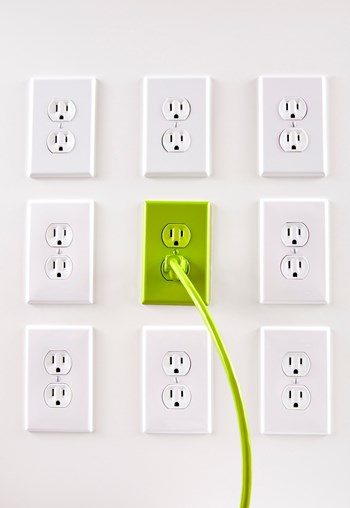
Among the thousands of multifamily buildings in the metro New York area, it is a consistent lack of intelligent maintenance practices that prevent buildings from attaining high performance and energy efficiency.
While expensive investments-like all new windows, a new boiler, or a state-of-the-art energy management system-can create significant energy savings. Simple, basic practices-like good record keeping, regular maintenance, reducing wasted energy, and good communication between the co-op/condo board and the building operator-can have huge impacts.
Building operators and their staffs are on the front lines of the day-to-day battles of building maintenance. The decisions they make can affect a building's performance and the quality of life of those who live in the building. Here are four things that building operators, owners, and residents can work together on to help save energy:
Keep Good Records
Proper record keeping allows someone other than the building operator to get the "big picture" of how a building is running. Unfortunately, the types of records that should be kept most often are not. A building operator should keep a number of logs that include documentation of fuel usage, deliveries, system down-times, maintenance calls, major repairs performed, and a record of all vendor information. All of this, when compiled, gives the board and manager a clear idea of what is happening in their building. Analysis of this data can indicate where appropriate changes need to be made.
Unfortunately, the types of records that should be kept most often are not. For instance, accurate records of fuel usage are seldom found in any building. Owners, managers, and boards see energy and water usage as a line item on a budget, yet if there is no documentation of the resources by consumption (e.g. gallons, therms, kilowatt hours) so it is impossible to determine where the building is consuming the most energy. Some buildings my company has inspected use five times more fuel for hot water than for actual heating. This can be solved with better hot water controls-not an expensive new hot water system.
A good deal of energy loss can be attributed to a lack of maintenance of both mechanical systems and the building's envelope. Annual tune-ups for heating, domestic hot water, and cooling systems should be done by licensed professionals-but this does not mean they should be inspected only once a year. The building operator should keep daily performance logs of the heating plant, domestic hot water, and cooling system to ensure they are operating at peak efficiency. For example, maintaining a proper temperature for the domestic hot water system reduces the danger of high temperatures that can scald residents.
The building operator should also follow basic operating procedures for all the equipment-usually found in the manufacturer's instruction manual. As simple as that sounds, it is not surprising to enter a building where no one from the building's staff has an understanding of how to operate the heating or cooling systems. An informed building operator, coupled with daily maintenance, will keep service calls to a minimum.
Proper air sealing of the building's envelope is perhaps the most important maintenance item. All cracks-from the failed weather stripping on the front door to the leaky ceiling of the elevator shaft-increase a building's "stack effect," (i.e., the upward movement of air inside a building resulting from heated air rising and escaping through openings in the building envelope). In large buildings, the stack effect is the reason why many windows in the topmost units are open during the winter: to exhaust excess heat. This leads to a great deal of heat loss from the lower units, the tenants of which request that the building operator turn up the heat, placing more demand on the heating system, using more fuel than necessary, and making the upper apartments even warmer.
Most buildings do not necessarily need solar panel systems or "green" roofs to conserve energy. An informed building operator can make a noticeable impact on a building's energy use. Installing simple and affordable items such as high-efficiency lighting, motors, refrigerators, dishwashers, and washing machines can result in huge energy savings-especially in buildings of 50 to 100 units. Products that carry the Energy Star label can save at least 30 percent in energy consumption, compared to non-Energy Star equipment. Fluorescent lighting is a low-cost, high-saving alternative to conventional light bulbs. Energy Star refrigerators and washing machines have been known to return their investment in just a few years. Front-loading Energy Star washing machines consume half the hot water of top-loading machines.
Knowledge about energy savings should be communicated to everyone involved in the building: owners, operators, and residents. They all need to be aware of the different issues involved with how a building uses energy and the options available to save energy. A well informed, skilled building operator is key. This operator should not only be able to provide advice but also have the necessary skills to fix air leaks in a unit, for example, and provide the board with the information it needs to make informed decisions on energy use.
Does your building operator need a refresher course in the areas covered above? The Building Performance Institute (BPI) will soon be offering a certification for Multi-Family Building Operators in New York City. Five full-day classes (once a week for five weeks) will begin in the fall and go through the winter. BPI is committed to raising the bar for all the building trades. For information on the certification process, or a free worksheet to calculate your building's energy use, contact the author at






Leave a Comment